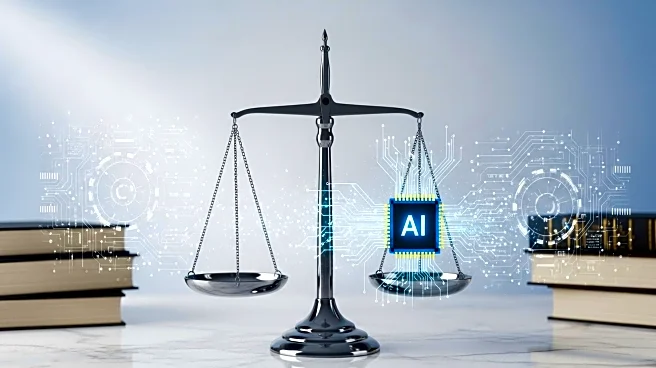What's Happening?
Despite increasing demand for AI skills in the legal industry, law schools are reportedly lagging in offering comprehensive AI education. According to Bloomberg Law's Path to Practice Survey, while some law schools have incorporated AI into elective courses, there is a significant decrease in overall AI course offerings. The survey indicates that law students are not participating in AI courses at expected rates, despite the industry's push for AI literacy. This gap between industry demand and educational offerings raises concerns about the preparedness of future lawyers to handle AI-related tasks.
Why It's Important?
The legal profession is increasingly relying on generative AI for various tasks, making AI literacy crucial for law students entering the workforce. The lack of comprehensive AI education in law schools could result in graduates who are ill-equipped to meet industry demands, potentially affecting their employability and the efficiency of legal services. As AI continues to transform the legal landscape, law schools must adapt their curricula to ensure students are prepared for the technological challenges they will face in their careers.
What's Next?
Law schools may need to reevaluate their curricula to include more standardized AI courses, responding to the growing demand from the legal industry. Encouraging student participation in AI courses could be key to bridging the gap between education and industry needs. As technological advancements continue, law schools might see greater changes in the upcoming academic years to better prepare students for the evolving legal environment.
Beyond the Headlines
The integration of AI education in law schools touches on broader issues of educational reform and the pace at which institutions adapt to technological changes. The reluctance to fully embrace AI education may reflect deeper systemic challenges within legal education, including resistance to change and resource constraints. Addressing these issues could lead to more innovative and responsive educational models that align with industry needs.










